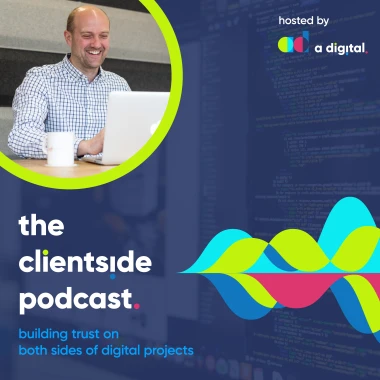
Creativity and Innovation with Dave Birss
The Clientside Podcast
48 min Dave Birss
Andrew Armitage talks to Dave Birss about creativity and innovation.
We discuss what creativity means and the many misconceptions people have surrounding it. Dave highlights that businesses are needing to innovate more than ever before, due to the pandemic and has some examples of those who have done so successfully.
We discuss the idea of brainstorming and the flaws that are typically found in attempts to be creative, solve problems and generate ideas when under pressure to do so.
Dave leaves us with some tips on how to structure the creative process including figuring out what you want the output of a session to be and working back from there.
Listen on your smart device or read the transcript below
If you want to solve a problem, the way it works is input, process, output. I very much believe that it's good to get people together, but I've got different ways of doing it. And one of the most important things is to give people the time to get their minds around the problem before you even bring them together.
Dave Birss Tweet